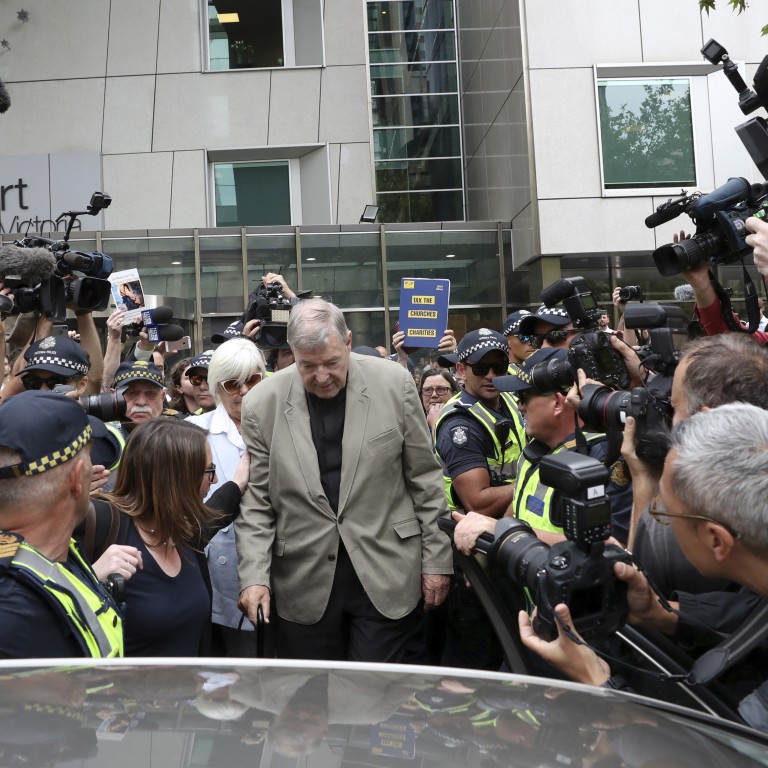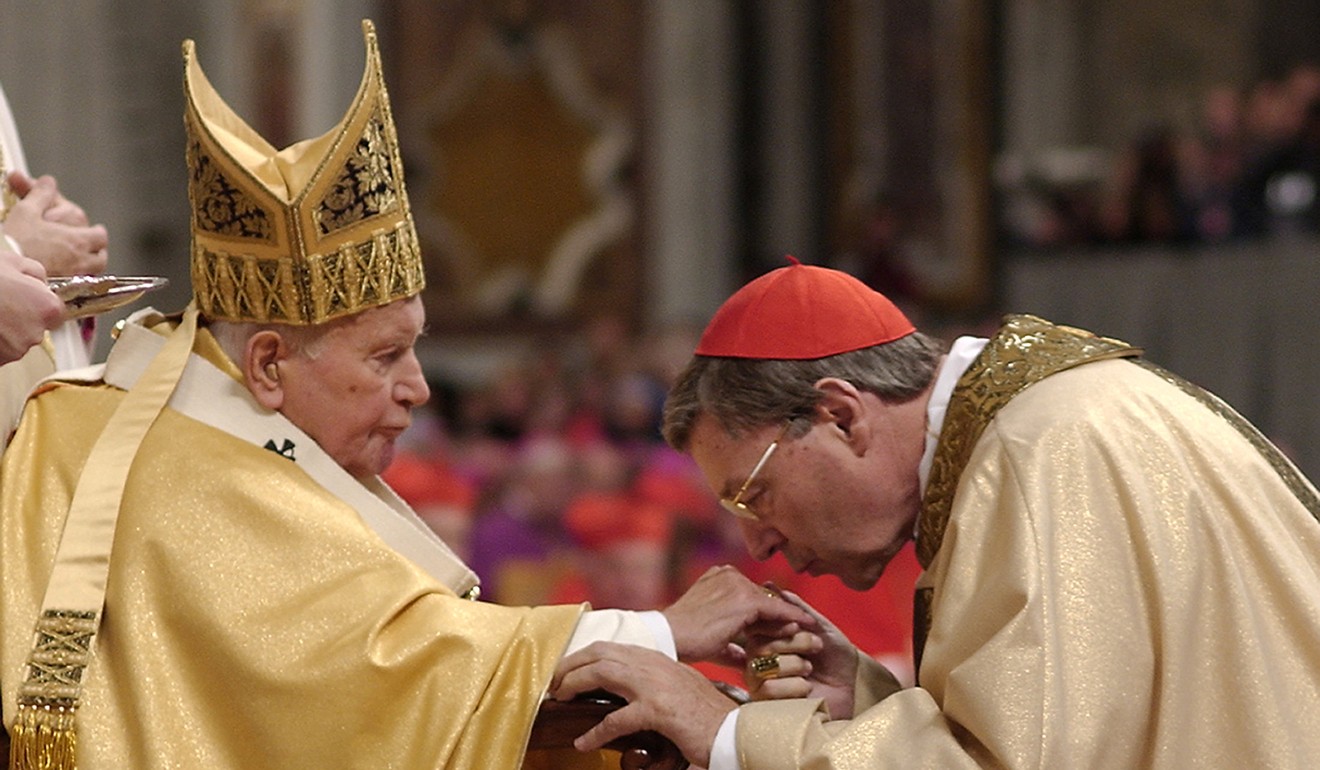
Cardinal George Pell was convicted of child abuse months ago. So why did Australia ban reporting on it until now?
- A jury found the top Catholic Church official guilty in December, but a suppression order stopped any media coverage until a second abuse case was heard
- The Washington Post and a number of other international media outlets ignored the order and reported on the ruling
When the news of Cardinal George Pell’s conviction on five charges for sexually assaulting two 13-year-old choirboys 22 years ago was made public on Tuesday, the announcement immediately became a top news story around the world.
But to some readers, the news of Pell’s conviction sounded familiar. It was first reported by some outlets – including The Washington Post – back in December when an Australian jury reached the verdict. A gag order, however, stopped many other media outlets from reporting on the trial since last June, including on last December’s conviction.
In the United States, Australia-style gag orders imposed by judges would be seen as censorship and a violation of the US Constitution.
Convicted child abuser Cardinal George Pell faces angry mob ahead of sentencing
But elsewhere, a number of rules can prevent the public from being partially or fully aware of court proceedings. In some cases, lawmakers have argued that forcing courts to make trials accessible to the public would prevent agencies from providing classified evidence considered necessary to convict terrorism suspects, for instance. This has led to some trials being fully closed to the public.
More common are suppression orders restricting coverage on certain details or for a certain amount of time. Australia is one of only a few countries where judges are also able to suppress reporting by issuing gag orders; Britain is another notable example. Those who breach suppression orders in Australia can face serious legal ramifications, which apply to both journalists and their publications, with prison sentences and fines among the possible punishments.

Q: What are the main concerns over this practice?
A: As more readers consume news online, gag orders have become far less effective, as international media outlets may be able to circumvent the restrictions. Critics also argue that rumours about trials, including misinformation, can spread on social media within seconds. Journalists present at the trials would be best positioned to rebut such speculation, but they would be legally bound to remain silent under current gag orders.
A degree of secrecy is often necessary to do justice
Concerns over such measures are shared not only by reporters and press freedom groups. A British committee of judges ruled in 2011 that gag orders were used too frequently. In their complaints, critics had previously also argued that the public was largely unaware of the extent to which gag orders restricted reporters’ and human rights advocates’ work, as reporting the existence of such orders is itself was often illegal.
The committee of judges largely agreed with that interpretation. “A degree of secrecy is often necessary to do justice, but where secrecy is ordered, it should only be to the extent strictly necessary to achieve the interests of justice,” committee director David Neuberger argued at the time.
To critics, gag orders tend to benefit wealthier or more prominent suspects, while restriction orders rarely apply to cases that attract less attention. That is why human rights conventions often not only emphasise that trials should be fair, but also public – indicating that both aspects are inherently linked.
Pope Francis dumps Cardinal George Pell as Vatican treasurer and bans him from work with children
Q: What are the arguments in favour of issuing suppression orders?
A: Besides national security arguments in closed courts, gag orders are supposed to prevent juries from being impacted by news reports of a suspect’s prior or current trials.
In some recent cases, tensions over the freedom of the press and judges’ suppression orders have boiled over into the public realm, with world leader weighing in as well. New Zealand Prime Minister Jacinda Ardern urged foreign media outlets last year to respect a suppression order on a suspect accused of murdering a British backpacker, after English tabloids revealed the accused’s name.
[Who] is going to protect the fundamental principle of open justice if the courts themselves are not as vigilant as they should be?
“We do not want anything to jeopardise the case that the police are pursuing,” Ardern said last December, the same week George Pell was convicted in Australia.
A separate trial against Pell was expected to begin later this year, but the charges have now been dropped, paving the way for last December’s conviction to be made officially public.
Q: How could a possible middle path look like?
A: In Britain, critics of such orders have proposed to introduce clearer time limits or means for news organisations to challenge them. But whenever cases draw only little public attention, media outlets would be unlikely to pursue such challenges.
Citing a recent case, University of Melbourne law professor Jason Bosland cautioned in 2017 that “potential costs of litigation were not seen as justified”, revealing the shortcomings of any changes to media outlets’ rights to challenge gag orders: “[Who] is going to protect the fundamental principle of open justice if the courts themselves are not as vigilant as they should be and if the media are increasingly unable or unwilling to intervene?”
To Bosland and others, one solution would be for state-funded advocates to question judges’ suppression orders on behalf of the public. But to even stauncher critics, abolishing of such rules would be the more appropriate move.

